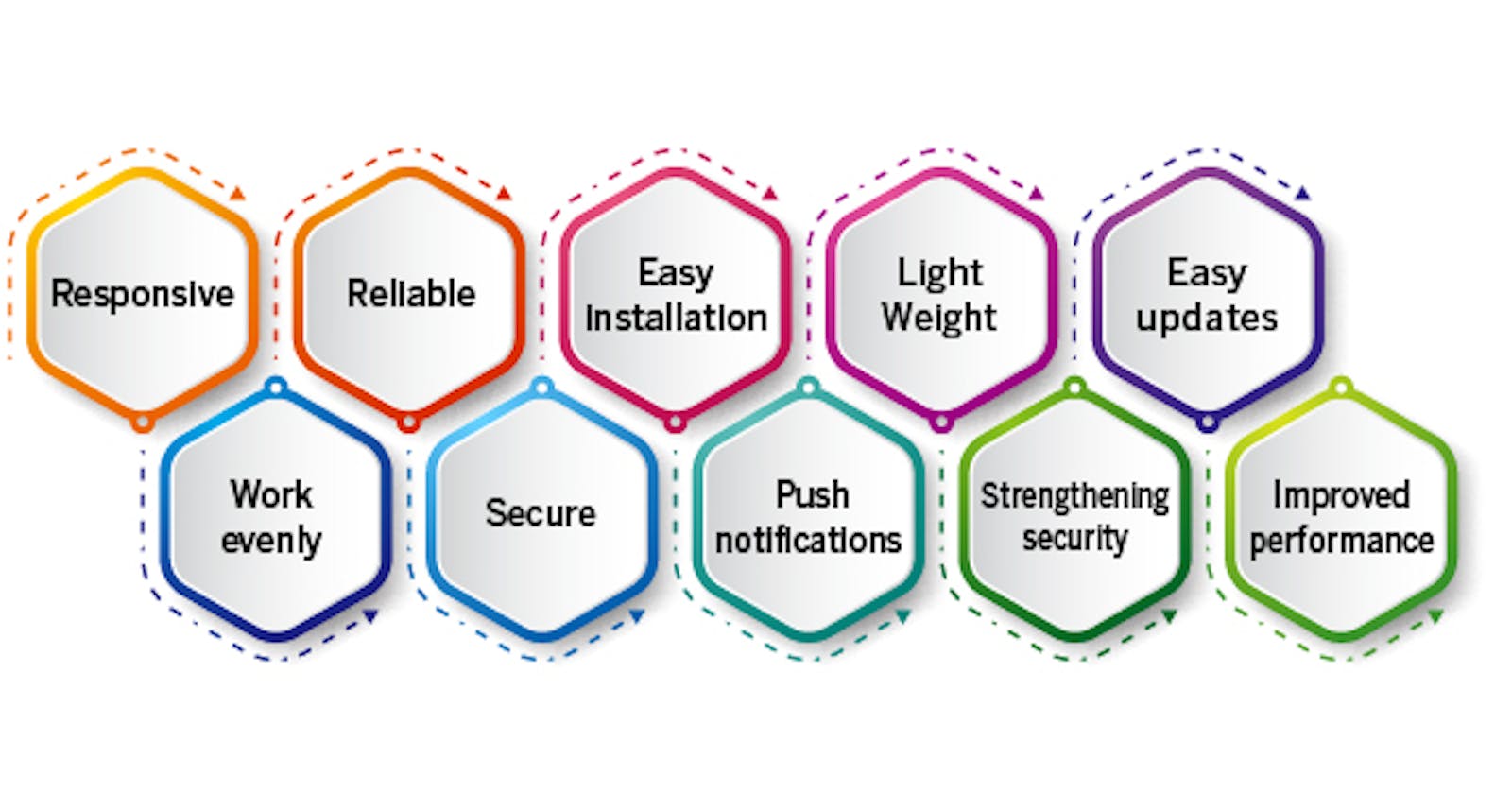Progressive web apps (PWAs) are a game-changer in web development. They combine the best features of traditional websites and mobile applications to offer users a seamless and engaging experience. PWAs are web applications that use modern web technologies to deliver app-like experiences to users in their web browsers.
One of the critical advantages of PWAs is their ability to work offline or with limited connectivity, thanks to caching mechanisms and service workers. This means users can continue interacting with the app even when not connected to the internet, enhancing accessibility and convenience.
Moreover, PWAs are responsive and adaptive, ensuring a consistent and smooth user experience across various devices and screen sizes. This flexibility makes them an ideal choice for businesses looking to reach users across different platforms and devices without needing separate native apps.
In addition, PWAs can be easily installed on users’ devices, allowing them to access the app directly from their home screens, just like a native app. This eliminates the friction associated with traditional app downloads and installations, improving user engagement and retention.
Brands utilize progressive web apps to enhance user engagement and effectively reach their audience. Some notable examples are:
Twitter: By adopting PWA technology, Twitter witnessed a significant increase in company and user engagement while also saving on data usage. This resulted in a 75% increase in business and a 25% decrease in bounce rate.
Pinterest: With just three months of development, Pinterest saw remarkable improvements in its PWA, leading to a 40% increase in total time spent and a 44% rise in user-generated revenue.
OLX: The PWA version of OLX, a classified online platform, provided users with fast and easy access via mobile web, resulting in notable improvements in user engagement and unique traffic.
BookMyShow: As India’s largest online platform for booking tickets, BookMyShow experienced an 80% boost in conversion rate and a significant reduction in checkout time to just 30 seconds with its PWA.
Forbes: By leveraging PWAs, Forbes transformed its user experience by offering personalized content and push notifications tailored to users’ preferences, increasing user engagement and satisfaction.
Alibaba: As a leading B2B trading portal serving multiple regions, Alibaba saw a 76% increase in conversion rate by offering users an app-like experience through its PWA.
Benefits of PWAs
Responsive: PWAs are designed to work seamlessly across various devices and screen sizes, providing a consistent user experience.
Reliable: PWAs can function even in areas with poor or no internet connectivity, thanks to service workers that cache content and enable offline access.
Easy Installation: Users can easily install PWAs directly from the browser without the need to visit an app store, making the installation process convenient and hassle-free.
Lightweight: PWAs are typically smaller than native apps, reducing load times and conserving device storage space.
Easy Update: PWAs can be updated automatically, ensuring users can always access the latest features and improvements without manual intervention.
Even Workload: PWAs distribute processing tasks evenly between the server and the client, optimizing performance and ensuring smooth user interactions.
Secure: PWAs are served over HTTPS, providing a secure connection between the user’s device and the server, thus safeguarding sensitive data and protecting against potential security threats.
Push Notifications: PWAs support push notifications, allowing businesses to engage with users even when the app is not in use, enhancing user engagement and retention.
Enhanced Security: With features like HTTPS, service workers, and secure data storage, PWAs prioritize security, protecting both user data and the integrity of the application.
Improved Performance: PWAs leverage modern web technologies and optimization techniques to deliver fast load times, smooth animations, and responsive user interfaces, enhancing overall user experience.
PWAs have effectively tackled significant challenges in native app development, particularly in searchability and visibility. As time progresses, users are anticipated to appreciate smooth search functionalities, thereby increasing overall expansion. This transition will enhance the online user journey by amalgamating app stores with online search capabilities.
